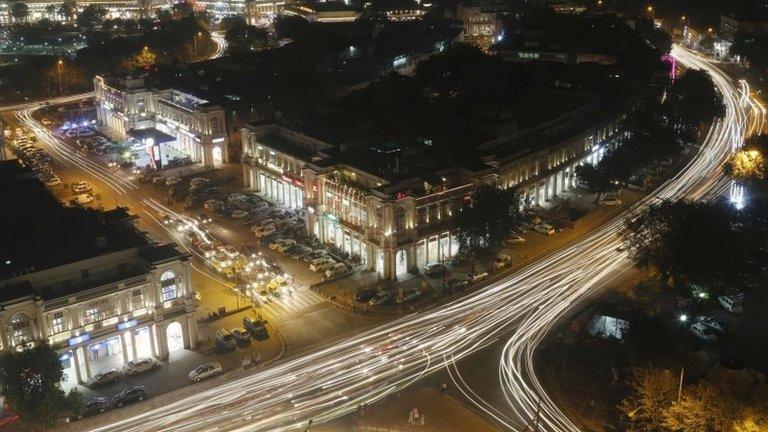Why there is a 'win for democracy' in Delhi
- Published
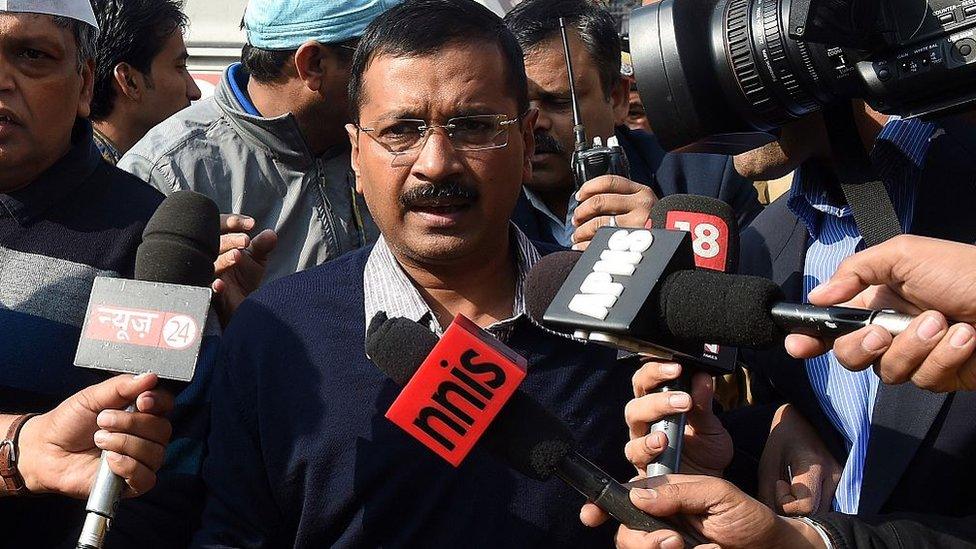
Delhi chief minister Arvind Kejriwal called the verdict a "victory for democracy"
India's top court has backed Delhi's government in a battle with the central government over who runs the capital.
Unlike other states, Delhi's Aam Aadmi Party (AAP)-run local government does not have full administrative powers.
It shares them with the Bharatiya Janata Party (BJP)-controlled centre, which it has accused of interference.
The AAP alleged that the centre was conspiring against them with the help of Delhi's Lieutenant Governor (LG), the constitutional head of the state.
The AAP has consistently campaigned for greater autonomy for the state because control of the state's police force, land, and law and order rests with the centre.
It approached the Supreme Court in 2016 after the Delhi High Court ruled that the LG was the state's administrative head.
But the Supreme Court ruled on Wednesday that "real power must lie with an elected government" and that the LG was "bound by the advice of cabinet".
Many welcomed the verdict, hoping this would end the tussle between Delhi Chief Minister Arvind Kejriwal and Prime Minister Narendra Modi.
Here are some of the big takeaways from the ruling:
The verdict cleared up constitutional confusion
The Supreme Court's five-judge constitutional bench unanimously ruled that the Delhi government is the highest authority in the state. This had been in doubt since the Delhi high court verdict in August 2016 that said the LG was in charge.
The court said Delhi would not be granted "complete statehood", as the AAP had demanded. While the state and central governments will continue to share administrative powers, the LG has no right to overrule the cabinet or play an "obstructionist" role.
The LG could only make independent decisions in matters relating to land, police and public order, the court added.
How is the prime minister involved?
The federal government led by Mr Modi has backed the LG, who is an appointee of theirs. They have consistently said that they must have the final say in Delhi's administration since it is the national capital.
So, given that the court has ruled differently, the verdict is certainly a blow for Mr Modi.
Ever since Mr Kejriwal's landslide victory in Delhi state elections in February 2015, his AAP government has been at loggerheads with the centre.
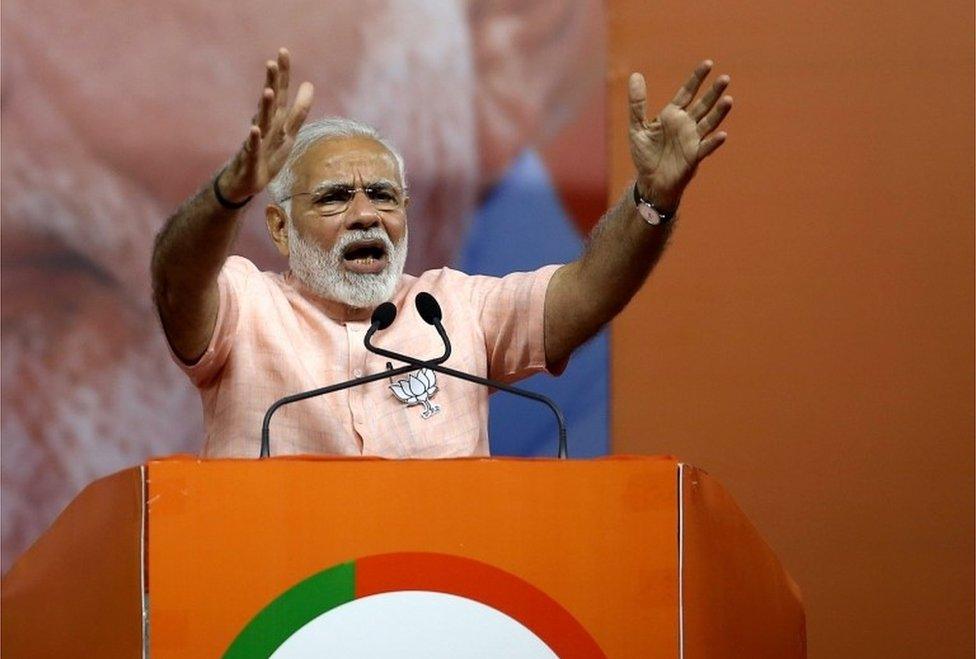
The ruling is a major blow for Prime Minister Narendra Modi
The relationship between the two parties only worsened as 13 AAP lawmakers were arrested between 2015 and 2017 by Delhi police on various charges, from alleged rape to forgery to extortion.
Mr Kejriwal alleged that it was a smear campaign by the BJP government. There has been no progress in most of the cases since then.
Mr Kejriwal's battle with Mr Modi has also taken some ugly turns. In December 2015, he called the prime minister a "coward" and a "psychopath" on Twitter after alleging that his office had been raided by the country's federal investigation agency on Mr Modi's orders.
"When Modi couldn't handle me politically, he resorts to this cowardice," he said at the time.
It's a win for Arvind Kejriwal
Mr Kejriwal hailed the verdict as a "victory for democracy" on Twitter.
Allow X content?
This article contains content provided by X. We ask for your permission before anything is loaded, as they may be using cookies and other technologies. You may want to read X’s cookie policy, external and privacy policy, external before accepting. To view this content choose ‘accept and continue’.
This verdict is a huge win for him since his thorny relationship with the office of the LG produced sympathy as well as frustration among voters who accused the government of spending more time protesting than governing.
But Mr Kejriwal alleged that his government was not allowed to function by LGs who kept delaying crucial bureaucratic processes and paperwork.
He has also repeatedly accused the LG of being a pawn in the hands of the BJP. He made the allegation against both the current LG, Anil Baijal, and his predecessor, Najeeb Jung.
Many of the disagreements had arisen over who can appoint and transfer bureaucrats.
In June 2018, Mr Kejriwal and three members of his cabinet camped at Mr Baijal's office, staging a "sofa protest" against what they alleged was obstruction by state bureaucrats. The strike, Mr Kejriwal said, was orchestrated by the offices of Mr Modi and Mr Baijal.
Can the AAP government deliver?
After the verdict was announced, experts said AAP could now stop playing the "victim card" and get back to running the state.
Mr Kejriwal, an austere 49-year-old former civil servant who once described himself as an anarchist, has had a rollercoaster ride since his spectacular political debut in December 2013.
He was in office at the head of a minority government for only 49 days before he resigned in protest amid a row over an anti-corruption bill. Nine months later, he defied expectations and won a landslide victory in the Delhi state elections.
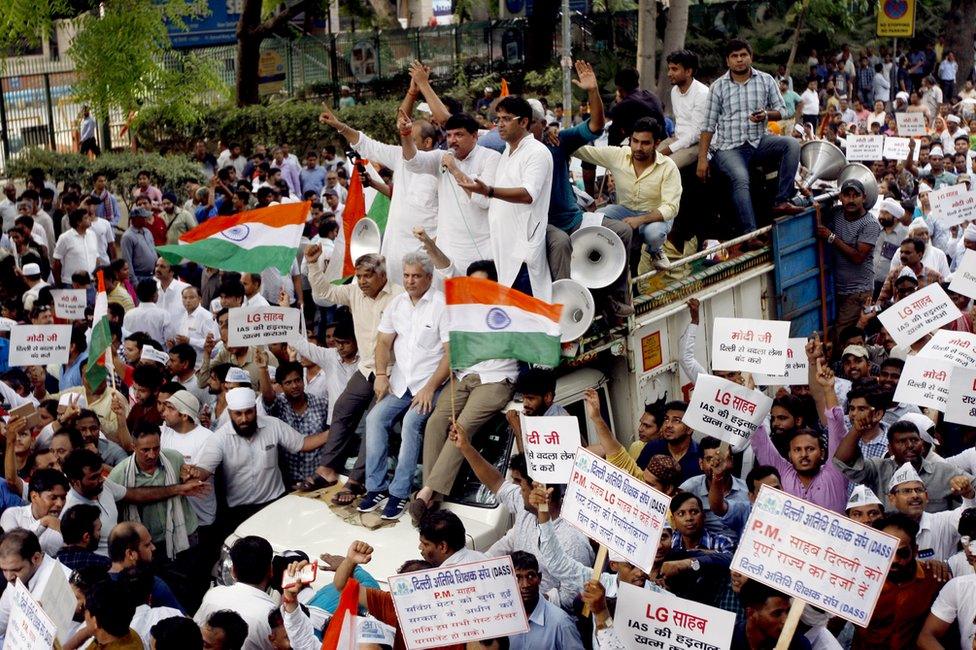
AAP volunteers protested outside the LG's office in support of Mr Kejriwal
But some experts have said the battles with the LG and the centre have marred the AAP government's record.
"I think the AAP government has not been allowed to function properly," Devender, who drives an auto rickshaw in Delhi, told BBC Hindi. "The elected government must be respected but it was not. As a result of this tug of war, the people suffered."
In June 2015, for instance, more than 15,000 tonnes of waste were lying on the streets of East Delhi because municipal council workers refused to collect rubbish for 10 days because they had not been paid salaries. The AAP had refused to release money for the salaries, contending that the BJP-run municipal council was allocated plenty of funds under the previous administration.
"The ruling is balanced but how Mr Kejriwal uses this opportunity, we'll have to see. He has made many promises until now but he has kept only a few," Kumari, another local resident, told BBC Hindi.
The AAP government, experts added, must now deliver on what it promised because the ruling has resolved what they had said was their biggest obstacle.
- Published21 November 2016
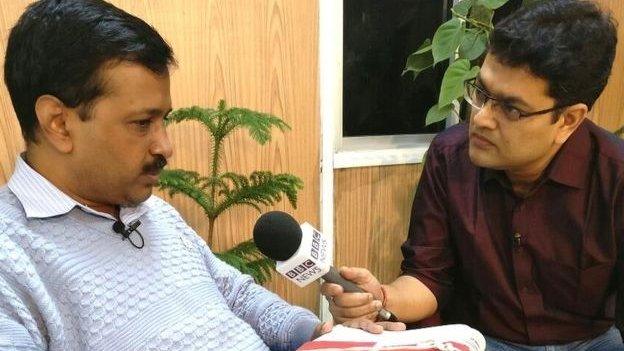
- Published15 December 2015
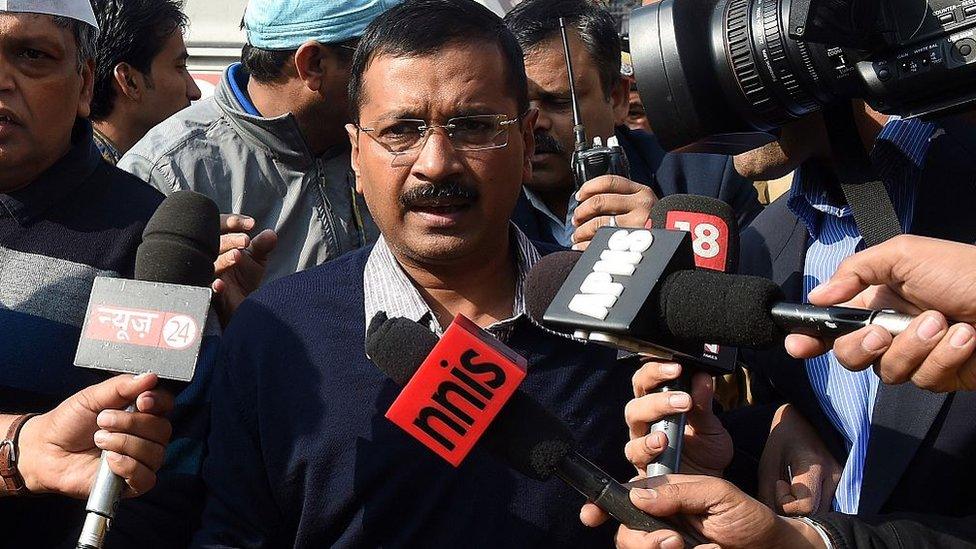
- Published12 June 2015
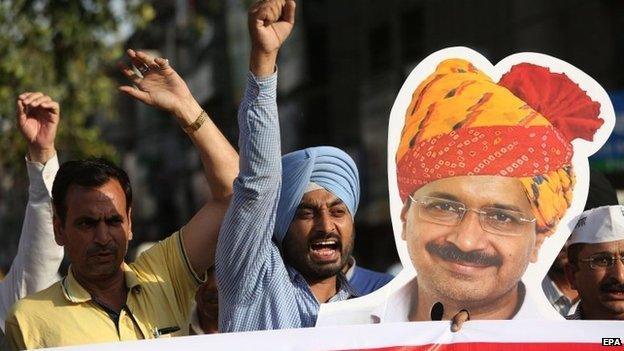
- Published4 November 2014
